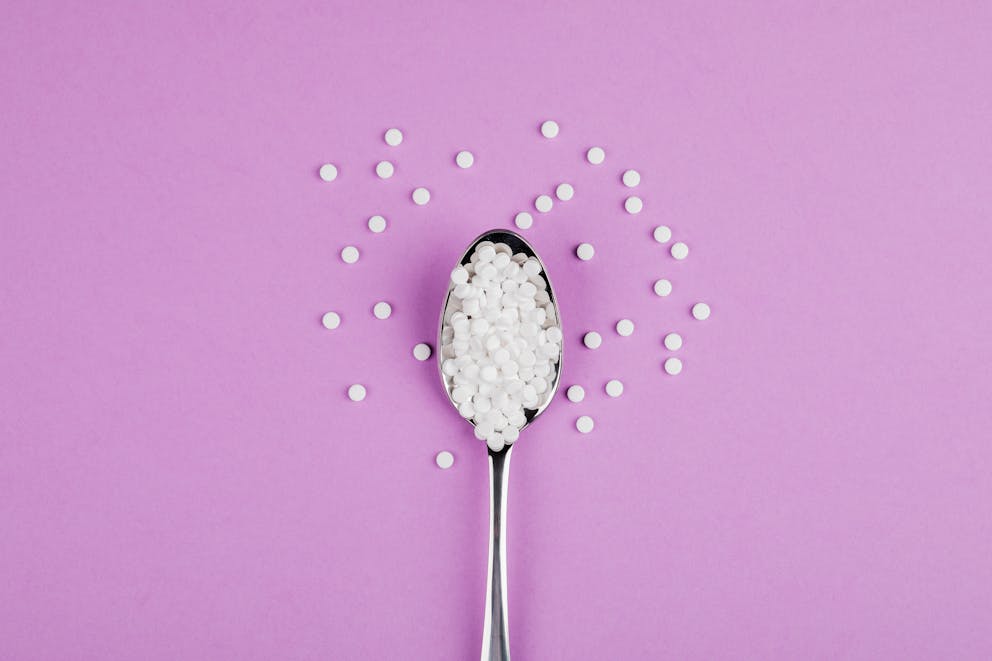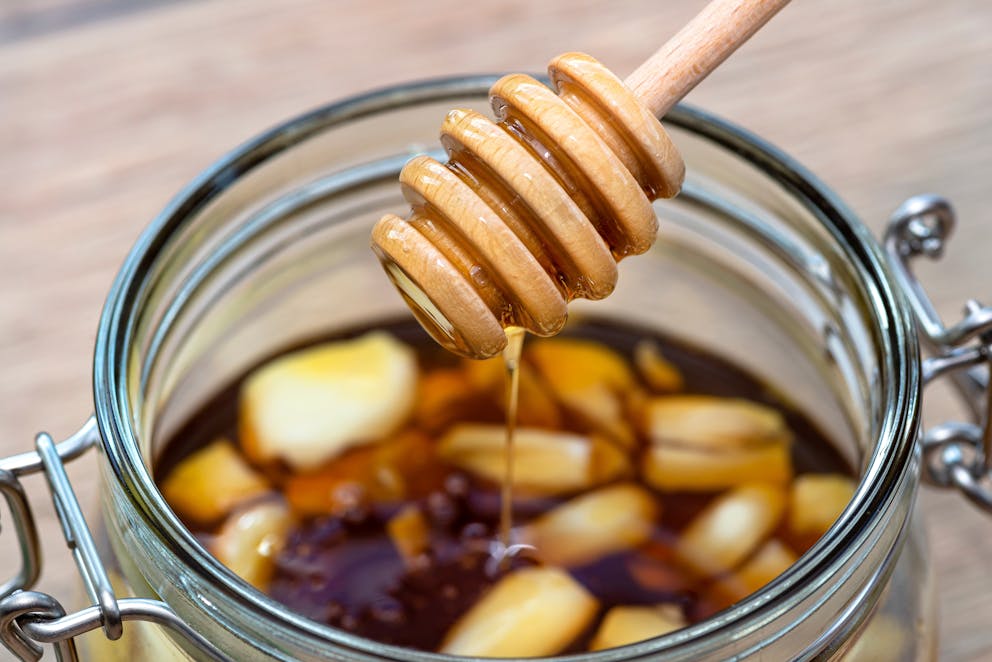Ketosis and Sugar Alcohol Sweeteners
Hello to you, another fan of the keto lifestyle! I know you're always on the lookout for the perfect sweetener to satisfy your cravings without kicking you out of ketosis. Trust me, I've been there.
It's like a never-ending quest to find the holy grail of keto-friendly sweetness. But here's the good news: sugar alcohols might just be the answer to your sweet tooth prayers.
Now, I know what you're thinking. "Sugar alcohols? That sounds like a fancy way of saying 'not really sugar.'" And you're right! Picture this - a special type of sweetener, low-calorie and steady for your blood sugar.
A dream come true for those watching their intake. They're like the superheroes of the sweetener world, swooping in to save the day (and your diet).
Understanding Sugar Alcohols and Their Impact on Ketosis
If you're following a ketogenic diet, you know that the goal is to keep your carb intake low to maintain a state of ketosis. But what about sugar alcohols? These low-calorie sweeteners are often found in "sugar-free" or "keto-friendly" products, but how do they really impact your keto journey?
Let's take a closer look at what sugar alcohols are and how they affect blood sugar levels and ketosis.
What Are Sugar Alcohols?
Sugar alcohols are a type of carbohydrate that have a chemical structure similar to both sugars and alcohol, but they don't contain ethanol like alcoholic beverages do.
They're found naturally in small amounts in fruits and vegetables but are more commonly manufactured for use as sugar substitutes.
Some common sugar alcohols include xylitol, erythritol, maltitol, and sorbitol. They have a sweet taste but fewer calories than regular sugar, making them a popular choice for sugar-free candies, gum, and baked goods.
The Glycemic Index and Ketosis
The glycemic index (GI) measures how quickly a food raises blood sugar levels. Foods with a high GI cause a rapid spike, while those with a low GI have a slower, more gradual effect.
When it comes to maintaining ketosis, it's important to choose foods with a low glycemic index. That's because high blood sugar levels can kick you out of ketosis by signaling your body to burn glucose for fuel instead of fat.
So where do sugar alcohols fall on the glycemic index? It depends on the specific type, but most sugar alcohols have a lower GI than regular sugar.
However, some can still have a moderate impact on blood sugar, so it's important to choose wisely and consume them in moderation.

The Best Keto-Friendly Sweeteners
When it comes to satisfying your sweet tooth on a keto diet, not all sugar substitutes are created equal. Some can still spike your blood sugar and derail your progress, while others have little to no impact on ketosis.
Here are some of the best keto-friendly sweeteners to reach for:
Monk Fruit Sweetener
Monk fruit, also known as luo han guo, is a small melon native to Southeast Asia. The extract from this fruit is used to make a natural, zero-calorie sweetener that has become increasingly popular among keto dieters.
What makes monk fruit sweetener so keto-friendly? It has a glycemic index of zero, meaning it doesn't raise blood sugar levels at all. It's also around 150-200 times sweeter than sugar, so a little goes a long way.
Monk fruit extract contains compounds called mogrosides, which are responsible for its intense sweetness. It has been used for centuries in traditional Chinese medicine and is generally considered safe with no known side effects.
Stevia
Stevia is another natural, zero-calorie sweetener derived from the leaves of the Stevia rebaudiana plant. Like monk fruit, it has a glycemic index of zero and doesn't impact blood sugar or insulin levels.
Stevia is about 200-300 times sweeter than sugar and has a slightly different taste than monk fruit. Some people detect a bitter aftertaste, but this varies depending on the brand and individual perception.
Stevia has been used for centuries in South America and has gained popularity in recent years as a natural alternative to artificial sweeteners. It's available in both liquid and powdered form and can be used to sweeten everything from coffee to baked goods.
Erythritol
Erythritol is a sugar alcohol that occurs naturally in some fruits and fermented foods. It has about 6% of the calories of sugar and a glycemic index of just 1, making it a popular choice for keto-friendly baking and cooking.
Unlike some other sugar alcohols, erythritol is well-tolerated by most people and doesn't cause the digestive issues like bloating and gas that are common with other types. It has a clean, sweet taste that is very similar to sugar.
However, erythritol doesn't dissolve as well as sugar and can leave a slightly gritty texture in some recipes. It's about 70% as sweet as sugar, so you may need to use a bit more to achieve the desired level of sweetness.
Xylitol
Xylitol is another sugar alcohol that's commonly used as a low-calorie sweetener. It has a glycemic index of 12, which is still quite low compared to sugar but higher than erythritol and monk fruit.
One unique benefit of xylitol is its potential to improve dental health. Studies have shown that xylitol can reduce the risk of tooth decay by inhibiting the growth of the bacteria that cause cavities.
However, xylitol is also well-known for its laxative effect when consumed in large amounts. It's important to introduce it slowly and stick to the recommended serving size to avoid digestive discomfort.
Xylitol also has a slight cooling effect and doesn't dissolve as well as sugar, so it may not be the best choice for certain recipes. But for sweetening tea or coffee, it can be a good option.
Sweeteners to Avoid on a Keto Diet
While there are plenty of keto-friendly sweeteners to choose from, there are also some that are best avoided if you want to stay in ketosis. These high-glycemic sweeteners can cause blood sugar spikes and hinder your progress.
Here are a few sweeteners to steer clear of on a keto diet:
Maltodextrin
Maltodextrin is a highly processed sweetener made from starchy foods like corn, rice, or wheat. It has a glycemic index of 110, which is even higher than pure glucose (which has a GI of 100).
This means that maltodextrin can cause a rapid and significant spike in blood sugar, making it a poor choice for anyone following a ketogenic diet. It's often used as a filler or thickener in processed foods, so be sure to read labels carefully.
High Fructose Corn Syrup
High fructose corn syrup (HFCS) is a liquid sweetener made from corn starch. It's commonly used in sodas, baked goods, and other processed foods.
HFCS has a glycemic index of 58, which is considered moderate to high. But the real issue with HFCS is its high fructose content, which can contribute to insulin resistance and fatty liver disease over time.
Studies have shown that consuming high amounts of fructose can lead to metabolic syndrome, a cluster of conditions that increase your risk for heart disease, stroke, and diabetes. So even if HFCS doesn't directly impact ketosis, it's still best to avoid it for overall health.
Sucrose (Table Sugar)
Sucrose, or table sugar, is a disaccharide made up of glucose and fructose. It has a glycemic index of 65, which is considered moderate to high.
While a small amount of sucrose may not kick you out of ketosis, it's still best to limit your intake to avoid blood sugar spikes and cravings. Plus, consuming too much added sugar can lead to weight gain and other health issues over time.
If you do choose to indulge in a sugary treat, be sure to account for the carbs and adjust your intake accordingly. But in general, it's best to satisfy your sweet tooth with keto-friendly alternatives.

Honey
Honey is often touted as a natural and healthier alternative to sugar, but it's still high in carbohydrates and can impact blood sugar levels.
With a glycemic index of around 50, honey is considered a moderate-GI sweetener. It contains both glucose and fructose, with a higher proportion of fructose.
While honey does contain some beneficial compounds like antioxidants and enzymes, it's still best to use it sparingly on a keto diet. A single tablespoon of honey contains 17 grams of carbohydrates, which can quickly add up and kick you out of ketosis.
If you do choose to use honey, opt for raw, unfiltered varieties and use it in very small amounts. But in general, it's best to reach for lower-glycemic sweeteners that won't impact your blood sugar as much.
How to Choose Keto Sweeteners Wisely
With so many sweetener options out there, it can be tough to know which ones are truly keto-friendly. Here are a few tips for choosing wisely:
Reading Ingredients Labels Carefully
Don't be fooled by clever marketing claims like "sugar-free" or "low-carb." Always check the ingredients list and nutrition facts to see what's really in a product.
Watch out for hidden sources of sugar like maltodextrin, dextrose, or corn syrup. And be aware that some sugar alcohols like maltitol can still impact blood sugar more than others.
In general, look for products that use keto-friendly sweeteners like monk fruit, stevia, or erythritol. And pay attention to the serving size and total carbohydrates to make sure it fits within your daily macros.
Balancing Taste Preferences with Health Goals
Let's face it, no sweetener will taste exactly like sugar. But that doesn't mean you have to settle for bland or bitter-tasting foods.
Experiment with different keto-friendly sweeteners to find the ones that you enjoy the most. You may find that you prefer the taste of monk fruit over stevia, or that erythritol works better for baking than xylitol.
Keep in mind that your taste buds will likely adjust over time as you get used to less-sweet foods. And don't be afraid to use other natural flavor enhancers like vanilla extract, cinnamon, or lemon zest to add depth and complexity to your recipes.
At the end of the day, the best sweetener is the one that allows you to enjoy your food while still supporting your health goals. By choosing wisely and using them in moderation, you can satisfy your sweet tooth without sabotaging your keto diet.
Sweetness Unveiled
Embark on a journey through the realm of sugar alcohol sweeteners, addressing concerns surrounding their potential health effects.
As individuals seek to maintain ketosis while satisfying their sweet tooth, sugar alcohols like erythritol, xylitol, and sorbitol have gained popularity as low-carb alternatives to traditional sugars.
However, questions arise: is sugar alcohol bad for you? While some misconceptions exist regarding their impact on health, research suggests that sugar alcohols can be safely consumed in moderation for most individuals.
By unraveling these myths and exploring the science behind sugar alcohols, this exploration aims to provide clarity for those navigating the world of ketogenic sweeteners.
Conclusion
So there you have it, folks - the lowdown on the best sugar alcohol sweeteners for your keto lifestyle. From the zero-calorie wonders of erythritol and xylitol to the natural goodness of monk fruit, these sweeteners are here to make your low-carb journey a whole lot sweeter.
But remember, moderation is key. Don't go overboard with these sugar alternatives, or you might find yourself in a bit of a digestive pickle. Trust me, I've been there, and it's not pretty.
At the end of the day, finding the best sugar alcohol sweeteners for ketosis is all about experimenting, listening to your body, and enjoying the ride. So go ahead, indulge that sweet tooth, and keep on rocking the keto life!
Next blog
Ketosis Acne and Your Skin
Popular
08/21/2024
55.7K views
02/23/2025
46.8K views
11/18/2024
281.2K views
03/18/2024
11/21/2022




